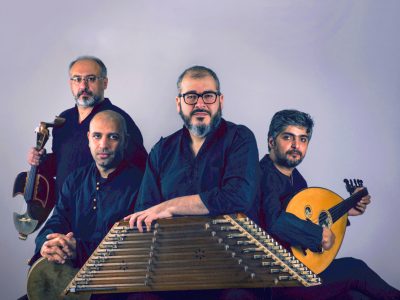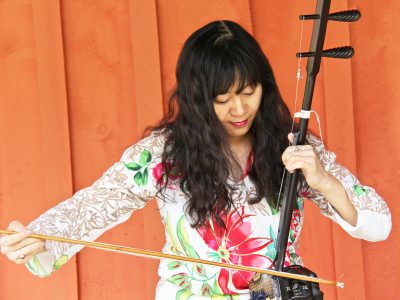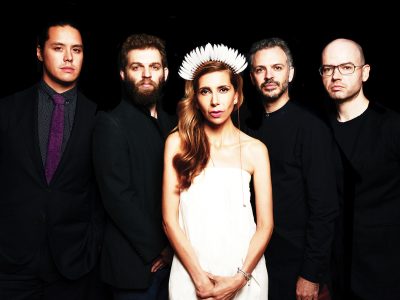- News
- Q & A with Amir Amiri
Q & A with Amir Amiri
Amir Amiri is an acclaimed Iranian-Canadian santur (72-string hammer dulcimer) player, composer, educator and musical director who has performed and collaborated all across Canada for over two decades. He has completed more than 20 residencies with the Banff Centre for Arts and Creativity, and has worked with musicians such as Bob Becker, Edgar Meyer, and Hugh Fraser. The Chan Centre Dot Com Series presentation of the Amir Amiri Ensemble, where Amiri is joined by Sardar Mohamad Jani (oud), Reza Abaee (ghaychak), Hamin Honari (percussion), and Omar Abu Afech (viola), premieres January 29, 2021.
We caught up with Amir to learn more about his most memorable career milestones, what makes his relationship with the santur is so special, and why the collaboration with his fellow ensemble members is “effortless.”
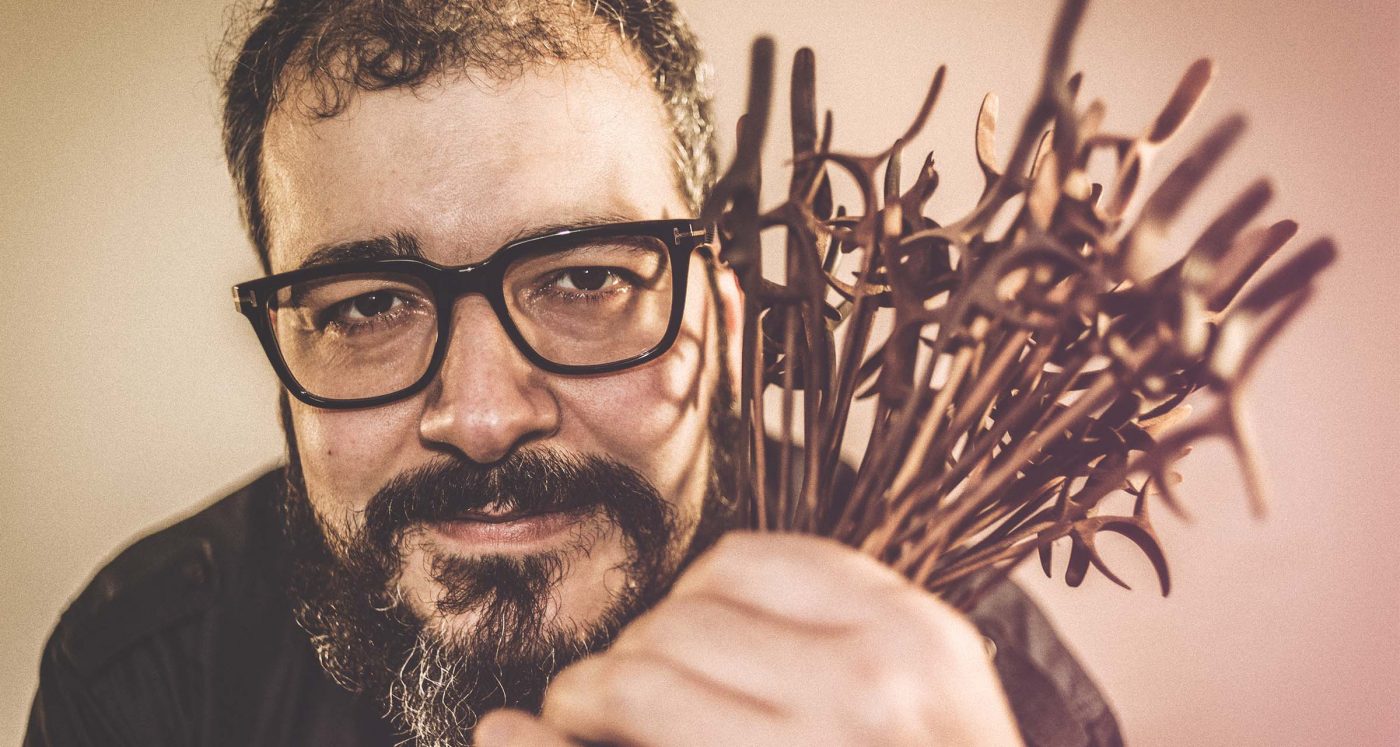
Chan Centre: Hello Amir! You’ve had an enduring, lifelong relationship with the santur. How did it begin, and how has it evolved?
AA: We have been fortunate to find each other. I was a little boy in Iran when I first heard this instrument. I was visiting my aunt and one day I remember waking up hearing this heavenly sound. To me, it was like the sound of stars, the strings were glittering in the light. I was fascinated and I remember clearly that then and there, I wanted to play it. Santur became my teacher—like a mirror where I can hear and see myself, it always shows me all that I am.
CC: This is your debut in the Chan Centre series, but you are no stranger to performing and collaborating within the Canadian artistic community. Which projects or partnerships have stood out for you over the years?
Amir Amiri: It has been an incredible journey so far and there are a few collaborations in my musical life that had an amazing impact on me as an artist. Meeting and playing with the great bass player Edgar Meyer: I remember rehearsing with him for a concert and feeling electricity moving through my body, I was very happy, and the music flew like an endless river. Working with late Canadian jazz icon Hugh Fraser is also a memory very dear to me, as I learned a lot from him both in music and life. I played a concert with him and with Canadian jazz pianist John Stetch, a collaboration that resulted in a program and wonderful concert called “Tehran Project”. Having the honour to work with classical pianist Anton Kuerti at the Banff Centre for a few days was a definite highlight in my life—I learned many important musical concepts that I still use today. I had the chance to meet and play with distinguished flutist Gergely Ittzés: it was out of this world! And as a musical director, I worked with talented musicians for the Canada 150th anniversary at the National Arts Centre. It was outstanding week of hard work, an experience that ended in a sold-out concert.
CC: What inspires or influences you musically? Have those influences changed over time?
AA: I find that flamenco, jazz, and all kinds of improvised music outside of my own musical culture are very inspiring to me. Rediscovering classical musical traditions of the world is always a source of new ideas for me. I also find deep inspiration by watching and listening carefully to sounds of nature.
CC: Can you tell us about your process as a composer? How does a new work take shape?
AA: In my head, I see music. I do not hear music…I see it and if it makes me laugh or excited then I know there is something to look into. I imagine things, sounds and colors. To me, every key signature and instrument has its color: percussion is the frame for the picture, basses are brown, and so on—I see a frame in my mind and get excited about it. Throughout the years, I have learned what works and what does not, but the most important thing for me is to always feel excited to be able to work on any project.
"To me, it was like the sound of stars, the strings were glittering in the light. I was fascinated and I remember clearly that then and there, I wanted to play it. Santur became my teacher—like a mirror where I can hear and see myself, it always shows me all that I am."
Amir Amiri
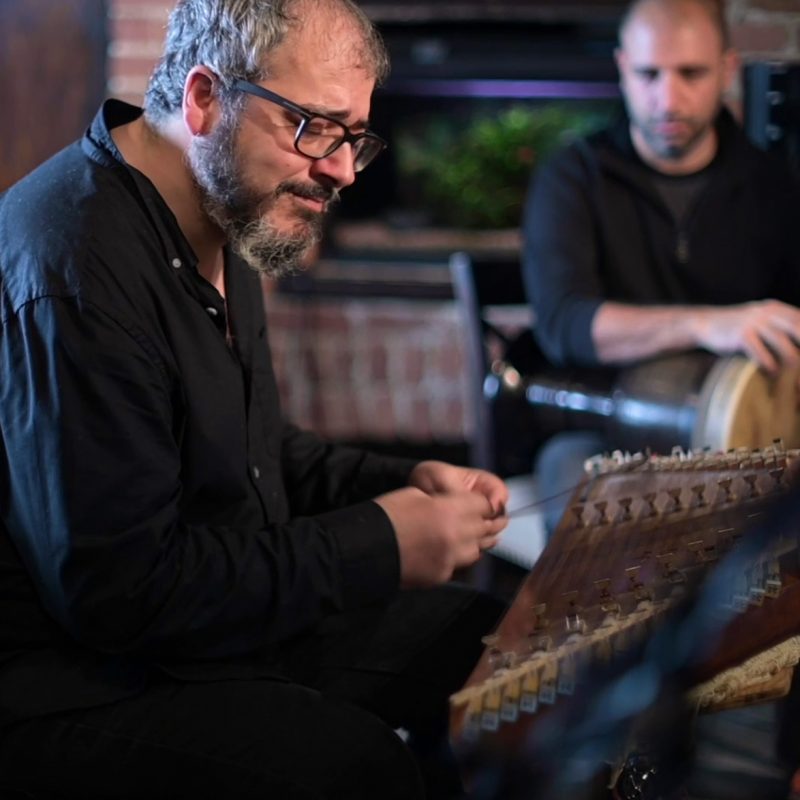
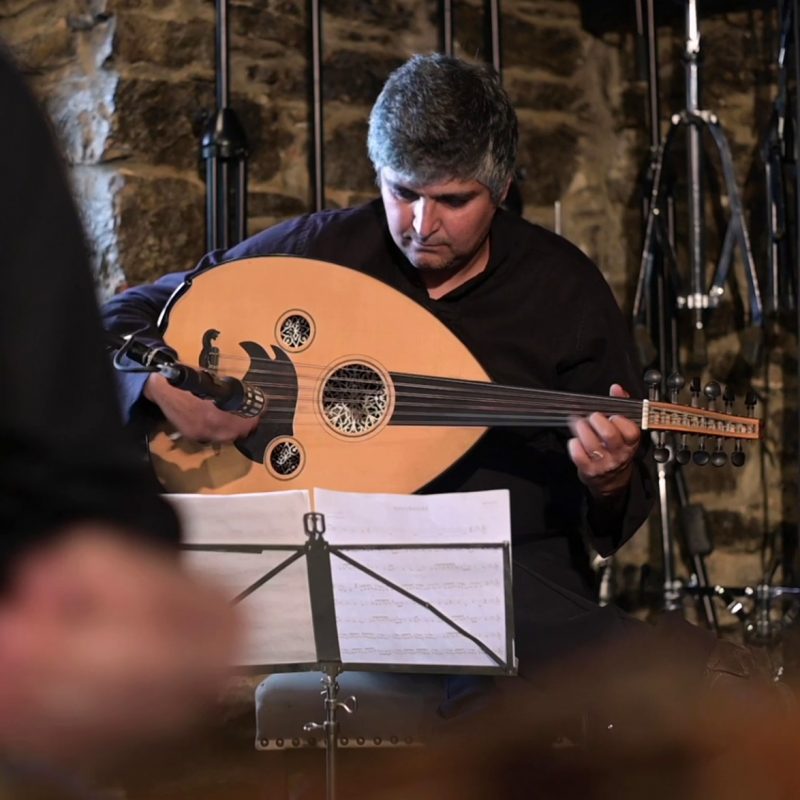
CC: What is special or meaningful about traditional Persian music to you?
AA: I feel that when Persian music is improvised, it is alive and breathing. It may seem that Persian music is melancholic, but in my opinion traditional music can be seen as a very long and ancient thread of people’s experiences. Persian music is a reflection of our history, a result of moments of overwhelming beauty.
CC: The collaboration and playing between you and the other musicians in your ensemble seems very natural and symbiotic. How did you come together, and what is your rehearsal process like?
AA: Being involved with artistic communities far and wide over the past two decades, I am now able to recognize when a collaboration will be fruitful. I wanted to create an ensemble with artists that I admire as people, as I find it is a way to ensure that the musical collaboration will flow effortlessly and will connect and inspire our audience. I am grateful to be able to collaborate with such amazing humans and musicians. We understand each other’s musical styles, and rehearsals are more like conversations. As an ensemble, we are not afraid to step out of our comfort zone to incorporate sounds from different musical forms and explore diverse musical possibilities.
CC: It has been an incredibly challenging year for performing artists. How are you doing, and have you been able to find any silver linings, creatively or otherwise?
AA: This pandemic is an unprecedented and difficult experience. For me and many artists, figuring out a way to be productive and adapt during this turmoil is deeply challenging. Nonetheless, this difficult moment forced me to put things on pause, but it also gave me the chance to be still. When I realized that this state of things might last a while, I started working on fine-tuning a few already existing pieces of music. I also wrote new music and thought of new collaborations. Essentially, I let my mind run free: free of schedules and free of engagements. I was able to establish connections with new artists, and even built a small recording corner in my studio – to explore and try to learn new platforms for virtual concerts and tutorials. I see this as an unusual opportunity to challenge, imagine and reinvent my work in new ways.
CC: What other music or artists are you paying attention to at the moment?
AA: Luciano Ghosn (guitar), Toumani Diabaté (kora), Veronica swift (jazz vocalist), Shiv Kumar Sharma (Indian santur), Vicente Amigo (guitar), Anna Maria Jopek (jazz vocalist), Jordi Savall (early music maestro).
The Amir Amiri Ensemble premieres Friday January 29, 2021 at 7pm PT.

